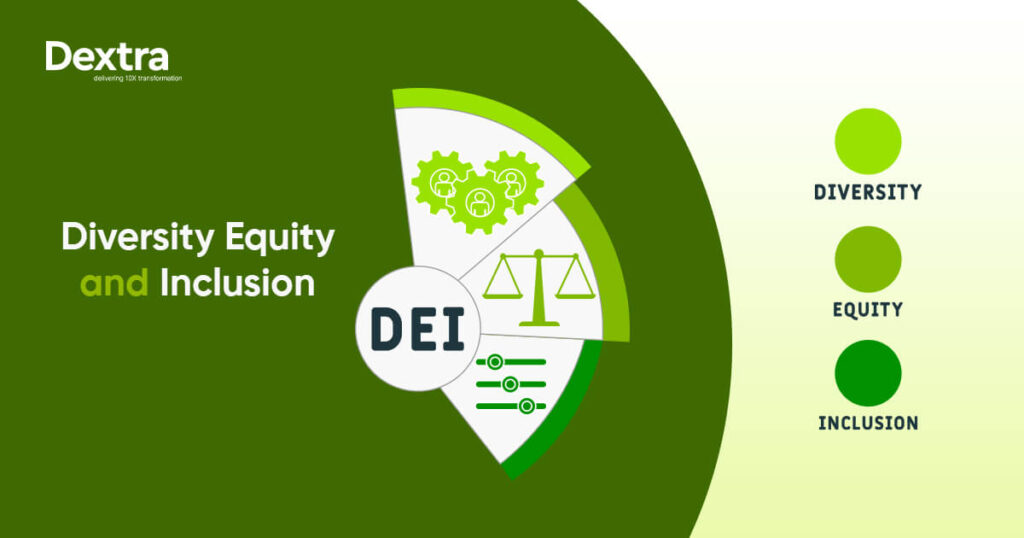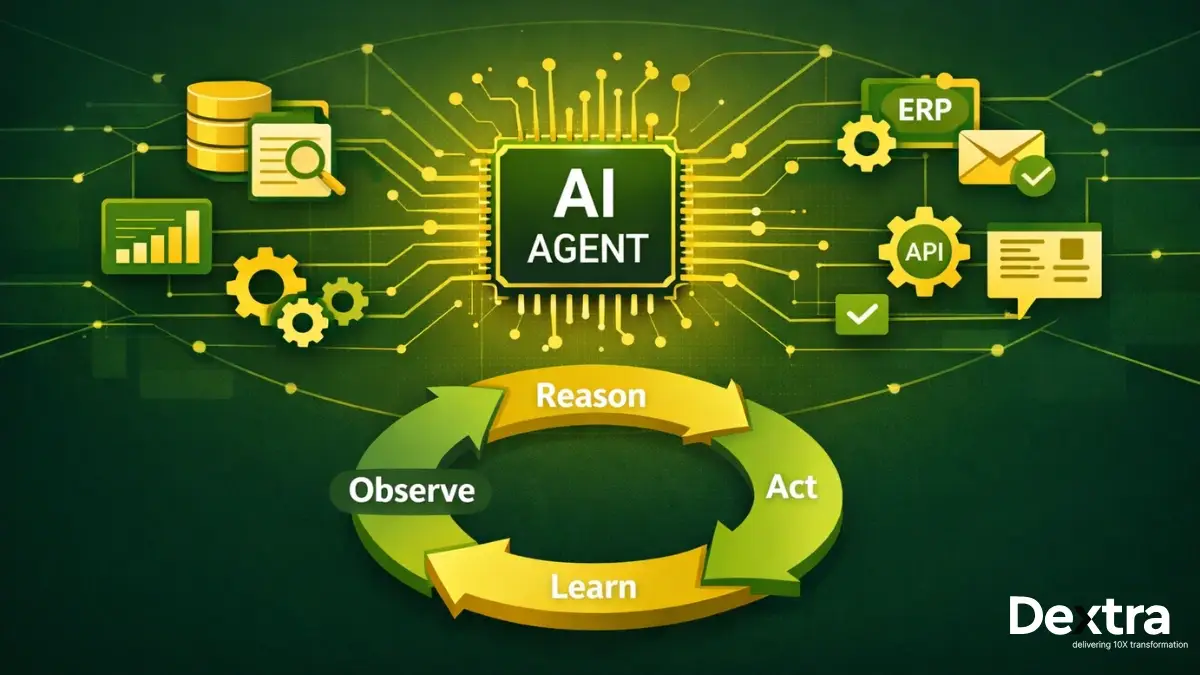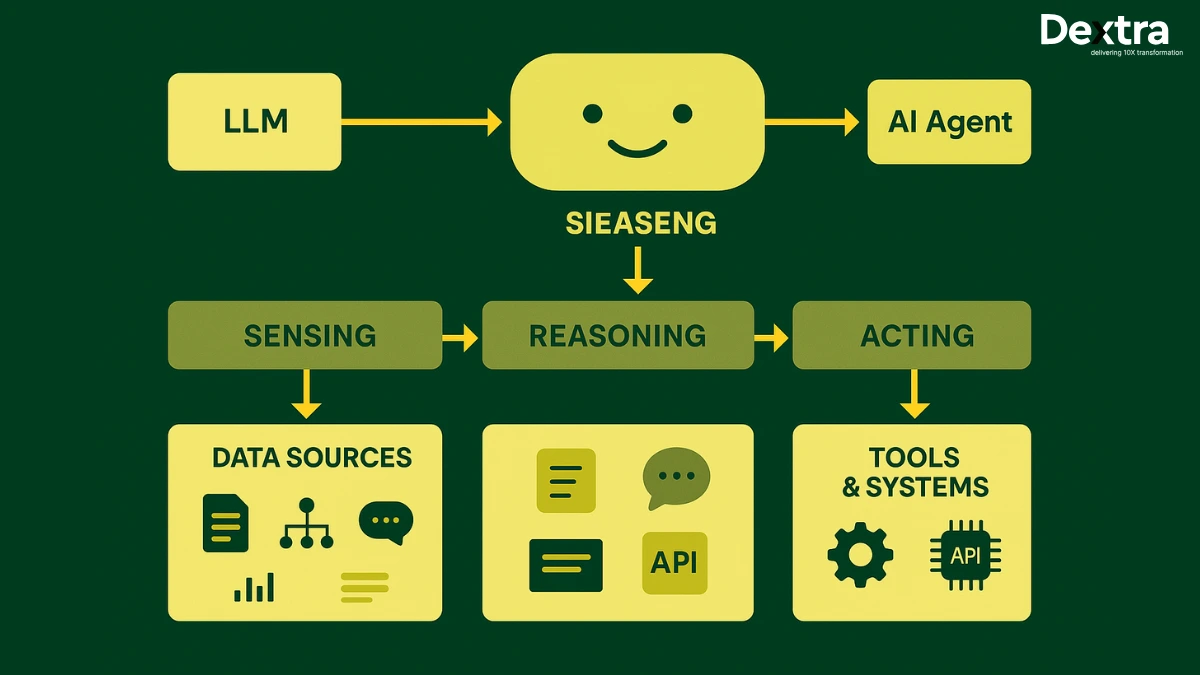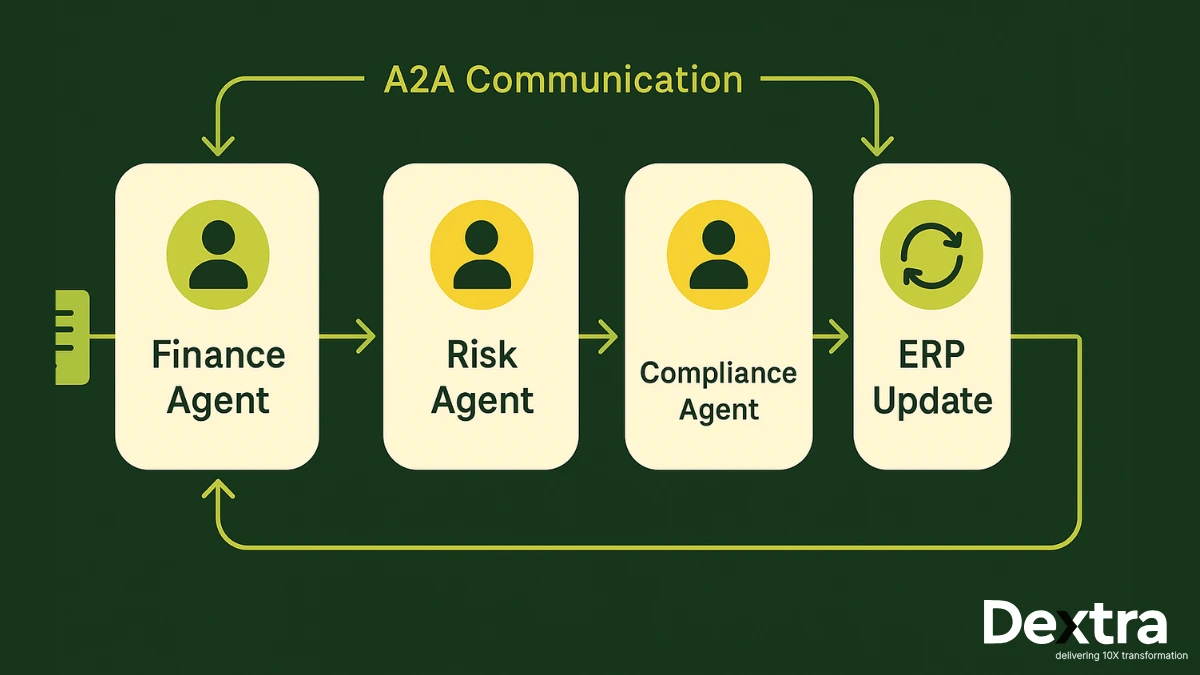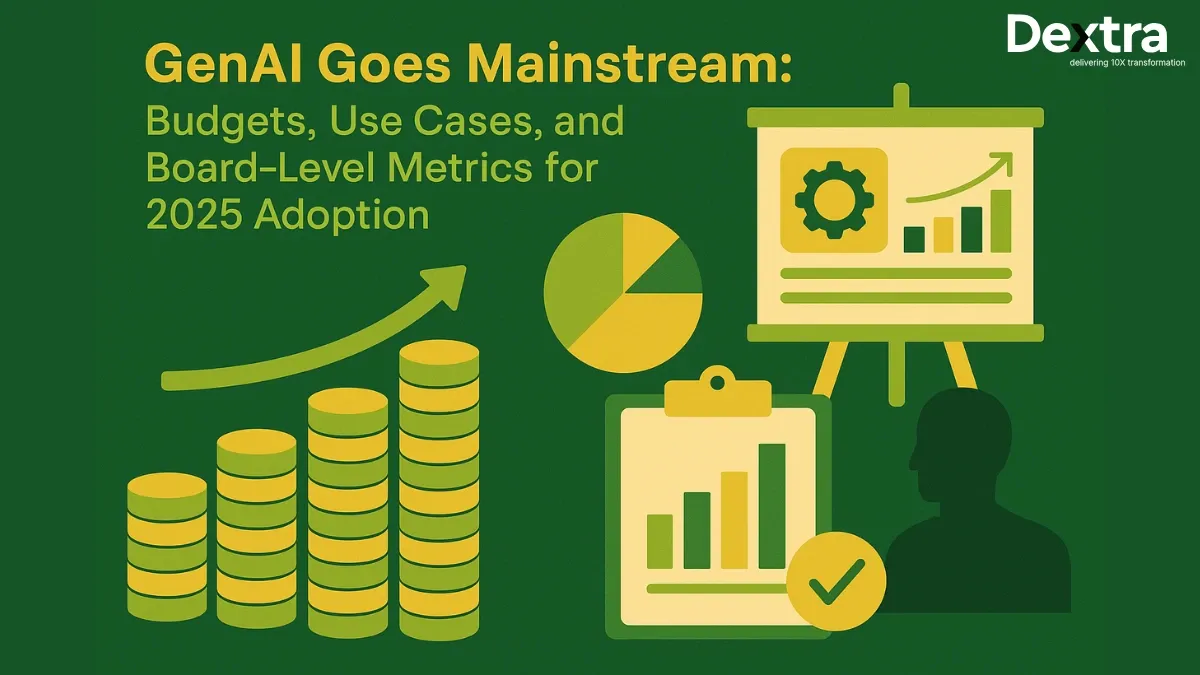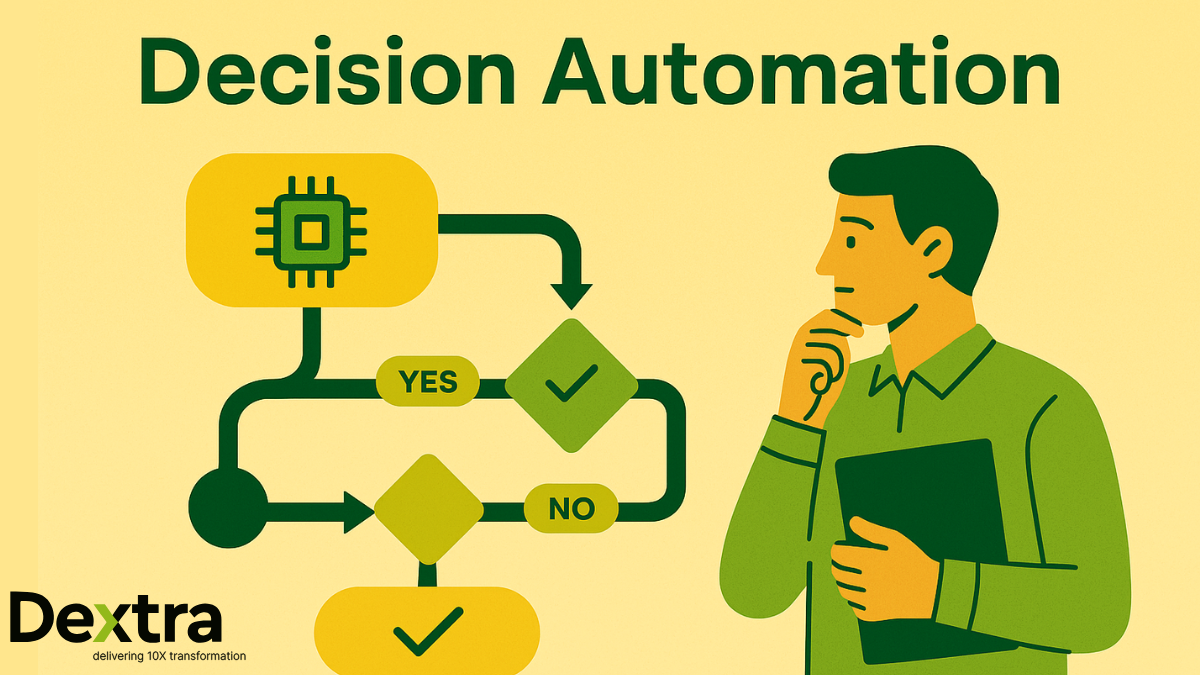In this fast-paced, dynamic digital and economic environment, companies that foster a culture of bringing three-packed value addition in the form of DEI (Diversity, Equality, and Inclusion) are playing a vital role in achieving the desired productive results. Promoting a diverse culture with equal rights and fair treatment and including these values in any business unit, community, or society can form a sustainable environment.
In this meticulous article, you can explore the what is the meaning of DEI, their implementation, and how these value-added packages are remodelling the structure and playing their significant part in addition to more cultural variety among all the individuals.
What is Diversity, Equity, and Inclusion (DEI)?
In the US alone, last year, more than 8 billion US Dollars were spent on the diversity culture, and many billion globally for the equity that everyone wants to feel the same at work. The ultimate goal of DEI is to provide a diverse place with equality to achieve success for an individual and enhance the collective human resources to boost business performance. We are explaining the DEI concept step by step below to project the exact picture of these three resources for an organization.
Understanding of Diversity
The diversified concept of diversity includes a wide range of differences. It discriminates in the workplace among individuals and groups based on differences such as race, gender, religion, language, disability, sexual orientation, age, religious commitment, or political perspective that have remained underrepresented among practitioners in the field and marginalised in the broader society. The major aim of the diversity role is to create the best intercultural working environment without any hesitations and inferiority emotions. The term diversity is main divided into some major categories depending on the complexity; we are sharing them below.
1. Cultural Diversity
This diversity includes multiple traditional and cultural factors representing their specific areas and nations. Their rich diversity is represented by their blood traditions, which precede the other cultures to form a multi-cultural presentation.
2. Gender Diversity
The major discrimination in the gender specification for the recommended businesses and communities can be overlooked in this diversity to organise a team of well-deserved candidates avoiding their gender, such as men, women, or transgender individuals. The diversity focuses on the availability, scalability, and, above all, the skill level to perform better in any field.
3. Age Diversity
The capability to perform any task and gain experience is independent of the age number. The different age groups can not justify their given role to perform and bring productive and passionate results to the table and help in building a strong team unit in spite of their age groups. The seniority and minority levels can not be awarded on the age basis; they are all based on the intellectual and mental activities performance.
4. Disability Diversity
This is the most emotional diversity to add the disable candidates in the team unit to perform and gain productive results either they are disabled. The disability can be in any form, such as physical, sensory, mental or cognitive.
5. Race and Ethnicity Diversity
Racial and ethnic diversity forces the people in the businesses and communities. This diversity also overcomes the dilemma of wealth and their background.
Why Does Diversity Matter?
There are multiple factors to highlight the importance of diversity in any business group, community, and society. Some key points of why diversity matters are:
1. Efficient Innovative Environment
Intercultural diversity confidently appreciates the working of people together for a single cause to perform major tasks perfectly, boost business performance, and activate high-end efforts, playing their major key role when they are hired. It allows the team of different regions, cultures, and their perspective dedicated experience can help to obtain the desired company’s goals in the set period. The diversity fosters individual and collective ability in the agile process and brings top-notch results.
2. Better Decision-Making Capacity
The collective effort to streamline the project can help in making better and prompt decisions to solve any complex-looking task, and the skilled, diverse team can break the unsolving task into major pieces, which indicates to delivery of the task to the relevant experience team. Some tasks can seem very difficult and hard to perform, depending on their originality. Still, diversity takes place to perform the task by a multi-cultural team, and they can show their perspective to solve any business query.
3. Obtaining and Retaining Talent
The key role of any management and HR team is to hire the best-finding talent to boost business activity and better performance to meet the dynamic, growing market demands with continuous changes. The extremely challenging task for the HR team and business units is to retain their best-performing employees depending on their viewpoints, leadership qualities, and decision-making abilities. In a recent survey, an estimated 65% of individuals are keenly interested in looking into the diversity performance of any employer. Companies with major diversity have high chances to find and retain the best talent.
4. Compelling Market Insights
The diverse culture projects the best understanding and ensures the ability to perform complex tasks depending on their niches with the collective approach of multi-cultural experience to make a major difference.
5. Promotion of Social Justice
Diversity plays an important role in bringing social justice and equality to their business units, communities, and societies. The major values, cultures, and emotions can lead the best collective unit and perform a valuable display of unity and equality.
Understanding of Equity
Equity is the key factor in achieving major goals, and better business understanding aligns with the business tone. The availability of resources, opportunities, and nondiscrimination while performing any task is termed equity. The process of equity provides every individual equal working rights depending on their skills and experience. It resonates with company policy to provide some opportunities and treat everyone equally in the work-place without any judgement and allow them to perform their assigned responsibilities. Some key concepts to explain the term equality in a more explainable way are:
Key Roles of Equity
1. Overlooking Discrminity
Equality supports individuals and groups to work in a one-frame network to support justice and overlook discrimination in the workplace. This term helps management and experts overcome the fear of people coming from multiple places and from any background to meet the one goal of achieving high-end productivity in business growth.
2.Provision of Equal Treatment
The ultimate surety of equality is to ensure the implementation of equal treatment for everyone in any circumstances. Equality also plays a major role in providing a sustainable platform for each worker to perform without any fear of superiority and inferiority to discriminate against individuals and ensure a peaceful environment for their work.
3.Projecting Inequities
The removal of unequal justice in the workflow lines enhances the beauty of equality to perform their respective task with a sense of freedom. The process of equality keeps in view the cons and implementation measures to streamline the project’s efficiency.
Why Does Equity Matter?
1. Promotion of Justice
The promotion of justice and fairness in each individual’s business dealings enhances the importance of equity implementation in the business sectors. Equality is linked with providing justice and fairness since businesses are more concerned with organizing systematic workflows. The prime example of understanding equality is to look at the educational environment that provides quality education, overlooking social discrimination and all diversity to provide equal study rights to each student.
2. Equal Opportunities for All
In this competitive world, providing equal rights and working opportunities is a challenging task for every business sector. Equality forces business units to ensure quality opportunities for people of different regions and sectors to perform equally in business growth and enjoy equal chances of success aligned with their responsibilities.
3. Driving Innovation
Innovation and growth are associated with streamlining workflows and easing business processes. Companies that provide equality and fairness in their objectives can mark their estimated goals and achieve milestones by providing quality and equality among all employees. Past research has shown phenomenal results where companies are combining diversity with equality to bring productive outcomes with collective performances.
4. Improvising Social Structure
Equity emphasizes equal rights for people, and experts are designing strategic policies to encourage an equality culture in business units, communities, and societies. Companies are more focused on building quality equality morals and providing equal rights and opportunities in the communities. That’s why people from different regions and societies are working towards the betterment of designing solid social structures.
What Does Inclusion Mean?
Inclusion refers to the dedicated practice in any cultural society, business community, or society of bringing all the individuals together to form a fair and transparent environment and business culture. In this segment, people are invited from all groups and communities, avoiding racism and social and sexual discrimination. Each participant in this group is appreciated equally and gets fair treatment without considering superiority and inferiority.
Major Key Aspects of Inclusion
1 .Belonging
2. Providing Equal Respect
3. Fairness In Opportunities
4. Collaborative and Supportive Environment
Major Benefits of Diversity, Equality, and Inclusion
There are numerous benefits of the DEI for individuals and groups to enjoy in a fair society and working environment. We are explaining the major benefits to get from DEI.
1. HR Recruitment Process
The three-valued pack (DEI) can improve and optimize the HR hiring process and maintain a consistent workflow. The HR team can craft strategic policies and generate automated business values on behalf of DEI implementations. It can make the process smoother and easier to hire the best diverse individuals, depending on the project quality and complexity.
2. Retaining Top Employees
It is challenging for all growing business units and for the HR team to hire the best individuals with relevant experience for the job responsibility. That’s why the role of HR becomes more complex when they need to make high-skilled employees retain policies, keeping in mind their job perspective and their availability for holding future projects in favor of the company’s success.
3. Empowering Innovation and Growth
The collaboration for maintaining the company policy to achieve the growth percentage and bringing the updated automation and innovation in all the business sectors for business success. It is a collective effort by all the dedicated team members to craft and understand the details of the project and work together to achieve business goals. DEI can help the team leader to build a suitable and dedicated team to perform any task, depending on the complexity, prior experience, and diverse background to perform under pressure to solve the complex problem arising in any business.
4. Building Trust
Every company tries to build trust among all the working team members on a specific project so that they understand their responsibility and complete it in the given period to save workflow time. In past years, more than 60% of people have been dedicated to putting all their efforts into getting the project done and maintaining consistency while operating to ensure that the manpower is benefiting the employer.
5. Generating Business Values Outcomes
Companies that promote and advocate the DEI culture in their operations can generate better business values and ultimate outcomes in the form of a collective unit. If your company is adopting the DEI channel, then surely the business unit can boost their project workflow because of the smooth fair treatment among all employees, and they can benefit the company by going out of the way and spending a bunch of time in the line and joining their heads together to think and resolve all the complex tasks by dividing according to their experiences and skillset to cut more time.
Frequently Asked Questions
Q. What is the biggest challenge the DEI faces?
The biggest challenge in the DEI is a lack of awareness and basic understanding of these value-generating terms, which is necessary to form a dedicated and well-mannered transparent cultural environment.
Q. What are the 4 Cs?
These are important terms in the DEI, which craft a strategic policy for fairness in every segment. The four Cs are Career, Community, Capital, and Connections.
The Ending Thoughts
Finally, we have reached the point to conclude with valuable thoughts to summarize the concept of DEI and their benefits and key roles in the business sectors, communities, and social societies. DEI can help the most challenging environment in today’s world and can minimize the risk of feeling demotivated and unfair in the whole process. The companies that are implementing DEI in their business performance are heading over the competitors and generating more productive results.

